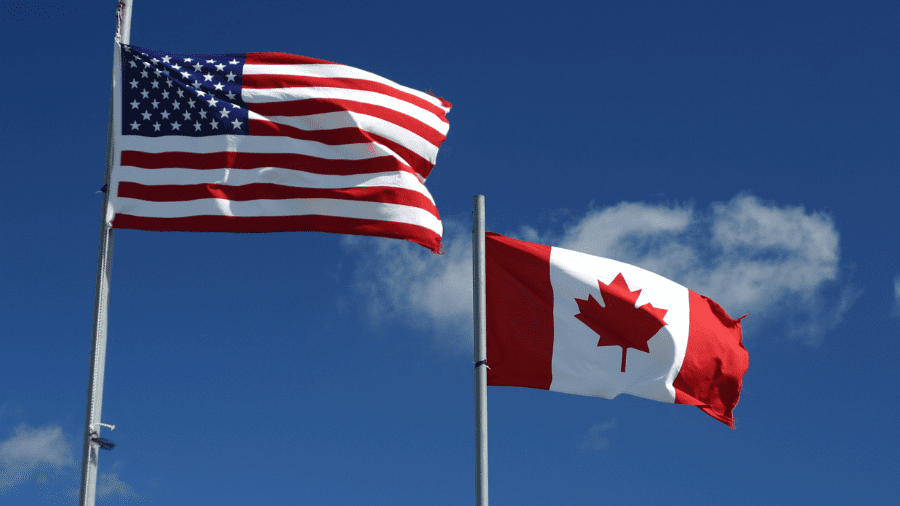By Lawrence L. Herman, March 31, 2023
After tough bargaining with the Trump administration, the Canada-US-Mexico Agreement (CUSMA) replaced the North American Free Trade Agreement (NAFTA) in 2020. If anyone thought Canada could breathe a bit easier when CUSMA was concluded, think again. There is every chance Canada will be back at the negotiating table with the Americans in less than three years.
This is because CUSMA comes to an end in 2036 unless the three governments agree to its continuation in a joint review to take place in 2026. The 2036 sunset date was demanded by the Trump administration, who hated the fact that the old NAFTA tied the US down in perpetuity without an effective off-ramp, seeing the review feature as adding to American leverage. That was actually a mischaracterization because the NAFTA was always open to amendment and because any one of the three Parties could withdraw from the deal whenever it wished to anyway.
In any case, because of the Trump team’s demands, CUSMA does have a 2036 termination clause, subject to the all-important 2026 review. Even if some three years away, it is this joint review that demands attention.
Under Article 34.7 of CUSMA, the review is to be convened by the CUSMA Free Trade Commission, the oversight body headed by the trade ministers of all three countries. The article says that as part of this review:
each Party shall confirm, in writing, through its head of government, if it wishes to extend the term of this Agreement for another 16-year period. If each Party confirms its desire to extend this Agreement, the term of this Agreement shall be automatically extended for another 16 years.
Thus if all three governments agree, the CUSMA will be continued. But if they do not, the Agreement comes to an end in 2036. While some may say it is unthinkable that joint confirmation will not happen, there are a lot of things left unsettled in Article 34.7.
To begin with, it sets out only general terms of reference for the Commission. Nothing stipulates how long the review process is to last. Nothing spells out the details of what the three governments are to submit in making their views known about extension. Although Article 34.7 says that the Commission shall, “review any recommendations for action submitted by a Party,” the provision does not set out what is meant by “recommendations for action.”
With all of these things up in the air, the real effect of Article 34.7 is that CUSMA and its contents will be on the table once the review process starts. The reference to “recommendations for action” means any one of the Parties – let’s say the US – can table proposals, including for major changes to the substance of the Agreement and for new provisions to be added as conditions for agreeing to its continuation.
This is not certain, of course. It is always possible that the review will proceed smoothly with no surprises, ending with each of the three governments agreeing to CUSMA’s continuation without much fuss. But with disorder in the global trading system impacting North America, with rapid advances in areas of cybertechnology and zero carbon measures, with supply chain reconfigurations and a host of other factors, it seems unrealistic to assume things will go that way.
The more plausible scenario is that one or more of the three Parties, most likely but not only the US, will want major parts of CUSMA reconfigured or added to. Being realistic, it means that there will be a new round of North American trade negotiations starting in 2026. That in turn means that work must begin now for Canada to be prepared to this. Here are three areas of preparations that the federal government should take:
- The Canadian trade minister should initiate early contact with her American and Mexican counterparts to exchange preliminary views on the mechanics and possibly the substance of the review, the idea being to smoke out the intentions of the other governments.
- Canada should propose a joint task force of the three governments to settle procedural matters and other details related to the FTC’s mandate under Article 34.7.
- Consultations with the Canadian business community and other stakeholders should be initiated to seek views on CUSMA, on which parts that need attention and areas where additions or changes might be needed.
The above will ensure that Ottawa gets an early start on preparing for the 2026 review, avoiding surprises and, in working with the other Parties, making sure the review goes as smoothly as possible. Because of the expectation that there will be some form of CUSMA re-negotiations staring in 2026 – whether large or contained – this is all about safeguarding Canadian interests.
Lawrence L. Herman is international trade counsel at Herman & Associates and Senior Fellow of the C .D. Howe Institute, Toronto.






